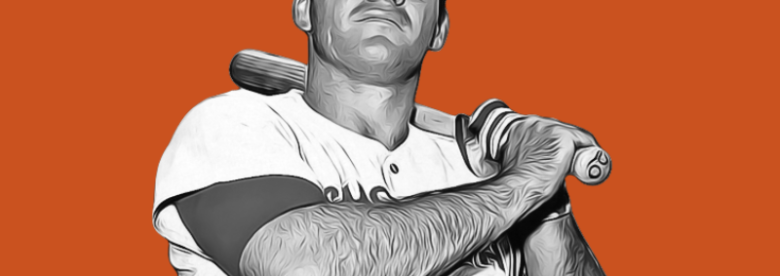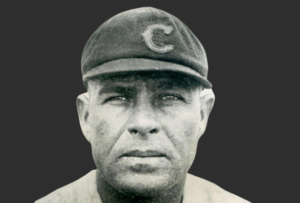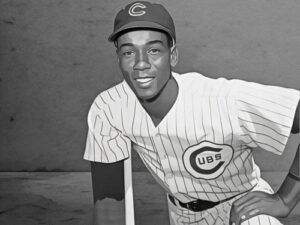Baseball’s all-time hit king and inconvenient problem child has died. Pete Rose passed away in Nevada on September 30, at the age of 83.
Rose’s death may or may not end the ceaseless debate over his exclusion from the Baseball Hall of Fame. In 1989, Rose agreed to have his name placed on the permanently ineligible list by MLB following an investigation into his gambling habits.
Rose eventually admitted to betting on baseball while he was a manager, and also placing wagers on his own team, the Cincinnati Reds. He has never been allowed to be placed on the Hall of Fame ballot, a decision that disturbed Rose throughout his life.
In 1963, Rose debuted for his hometown Reds, as a peculiarly enthusiastic young man with a bad crewcut. He evolved into the epitome of the 1970s: long hair, tight uniform, and flamboyance. He was the leadoff man for two World Series title teams for Cincinnati in 1975 and 1976. He later won a third ring as a member of the 1980 Philadelphia Phillies.
A cautionary tale on the dangers of hero worship, Pete Rose was deeply flawed. But he possessed a supernatural ability to focus, and he squeezed more out of his raw ability than just about any athlete in history. He was an egomaniac, compulsive, and a braggart. But he was also tireless, pertinacious, and heady. He probably would have sacrificed personal glory for team success, but he never had to because he drove himself like a maniac, fueled by a desire to etch his name in the record books. He was never the best player on his team, but he was always the best thing for the team.
Rose had very strong arms and legs, yet he did not have a strong throwing arm and he wasn’t a fast runner. He never paid much attention in school, but he was a baseball savant. He was not a power hitter, but he was a dense ball of muscle. He was so intuitive and competitive that he accomplished things no one else even imagined.
RELATED:
Cincinnati Reds All-Time Team
20 Greatest Reds of All-Time
Ranking Every World Series Champion
100 Greatest Left Fielders of All-Time
Rose had two consecutive-games played streaks over 500 games. He might have broken Lou Gehrig’s consecutive games record, had his managers let it happen. He was an All-Star at five different positions. When he was 37 years old he set a league record by getting a hit in 44 straight games. He was the only 40-year old to lead the league in hits, and he played in more winning baseball games than any other man in history.
You can’t do any of those things if you get injured, and Rose didn’t allow himself to get hurt. He played a full season with a broken toe and a painful elbow. He played when he didn’t feel 100 percent, and he never took a day off against Sandy Koufax or Tom Seaver or J.R. Richard. Rose wanted to be in the lineup every day, he craved the action. He refused to be taken out of games when his team was far ahead or behind: if he had a chance to hit again, Pete wanted to get to the plate. When he did, he treated it like it was the ninth inning of Game Seven of the World Series.
“The way I play baseball, I have to approach a season always trying to lead the league in something,” Rose explained. “Because that’s what keeps me going, that’s what motivated me. I know I will not be able to lead the league in hits if I play five times a week. Maybe it’s an ego thing, but I do it because it keeps me going. I am a very momentum-oriented player and I like to keep going. I don’t even like days off. Once I lose the edge of wanting to lead the league in something, I’ll not excel.”
When Rose arrived in training camp as a rookie in 1963 he was shunned by many of the players on the team, who saw him as a threat to second baseman Don Blasingame. At that time, most veterans did little to help young players because they feared losing their job. Rose became friends with Frank Robinson and Vada Pinson, the two best players on the Reds, who also happened to be black. After a few weeks of training camp, the Reds called Rose into the front office and scolded him for “hanging out with the black guys.” Rose explained that he didn’t give a damn what color they were, he liked them. They were showing him how to be a big leaguer.
Rose took Blasingame’s job, won the Rookie of the Year Award, and the front office never messed with him again. In the minors he was so enthusiastic and played with such eagerness that he was called “Hollywood,” “Hot Dog,” and “Jose Hustle.” But once Yankee pitcher Whitey Ford saw Pete sprint to first base in an exhibition game, Rose got the nickname that became his calling card: “Charlie Hustle.”
Pete Rose had this thing he did during the game that irritated his teammates. Pete would face a right-handed pitcher, let’s say, batting left-handed, and after getting a hit he’d remark, “This guy’s got nothing.” His teammates who were right-handed batters would tell Pete to switch to the right side next time to see what kind of stuff the pitcher had.
As player-manager for the Reds, Rose surpassed a record previously assumed to be unbreakable: Ty Cobb’s mark of base hits. When he lined a single off the artificial turf at Riverfront Stadium on September 11, 1985, he set off a nearly 15-minute ovation. He ended his career with 4,256 hits, a record that still stands.
Rose was proud that he appeared in more winning games than any major league baseball player. He was beloved, nearly worshipped in Cincinnati, even after the gambling scandal that clouded the last three and a half decades of his life.
For the fans who saw “Charlie Hustle” play, he was unforgettable. He displayed a joy and energy that no other ballplayer ever exceeded. His patented headfirst slide is forever immortalized through a statue located outside the Reds’ ballpark.






